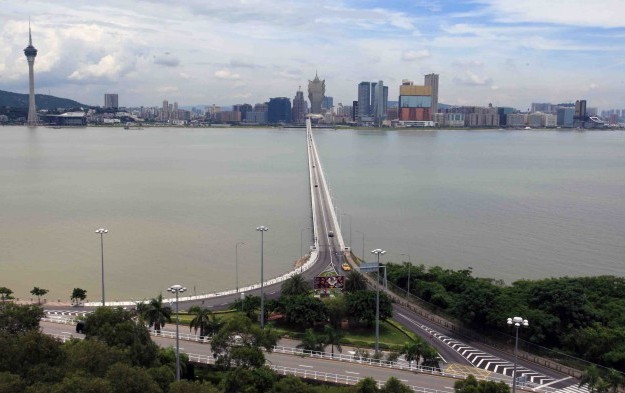Macau gaming tax revenue fell 36 pct between Jan-July
Aug 17, 2015 Newsdesk Latest News, Macau, Top of the deck

The Macau government’s take from direct taxes on gaming dropped 35.7 percent in year-on-year terms during the first seven months of 2015.
The city collected MOP51.9 billion (US$6.5 billion) in fiscal revenues from direct taxes from gaming between January and July, show data disclosed by the city’s Financial Services Bureau. That compares with MOP80.7 billion collected in the prior-year period.
Direct taxes from gaming brought in 80.5 percent of the Macau government’s total revenue in the seven months to July 31.
Macau’s Chief Executive, Fernando Chui Sai On, last week said he remained “prudently optimistic” regarding the development of the city’s gaming industry, despite 14 straight months of casino gross gaming revenue (GGR) decline in Macau measured year-on-year.
Mr Chui again stated that the Macau government would introduce previously flagged austerity measures to control spending if the city’s average monthly GGR dropped below the MOP20-billion threshold used to prepare the revised 2015 budget.
The government expects to collect a total of MOP85.9 billion in fiscal revenue from direct taxes from gaming in full-year 2015. By the end of July, it had already collected 60.5 percent of that amount.
The city levies an effective tax rate of 39 percent on casino GGR – 35 percent in direct government tax, and the remainder in a number of levies to pay for a range of community good causes.
The Macau government fiscal surplus was down by 59.1 percent year-on-year in the first seven months of 2015 to MOP27.2 billion. The revised 2015 budget – approved by Macau’s Legislative Assembly in May – foresees a full-2015 surplus of MOP18.8 billion.
Related articles
-
 Macau govt to keep cap on junket...
Macau govt to keep cap on junket...Jul 10, 2024
-
 Macau 1H gaming tax revenue hits...
Macau 1H gaming tax revenue hits...Jul 09, 2024
More news
-
 Donaco EBITDA up y-o-y to above US$4mln...
Donaco EBITDA up y-o-y to above US$4mln...Jul 26, 2024
-
 HK listed Palasino upgrades Czech...
HK listed Palasino upgrades Czech...Jul 26, 2024
Latest News
Jul 26, 2024
Border-casino operator Donaco International Ltd has achieved a 164.17-percent year-on-year increase in its latest quarterly group earnings before interest, taxation, depreciation and amortisation...Sign up to our FREE Newsletter
 (Click here for more)
(Click here for more)
Pick of the Day
”We’ve got more traction outside of Macau at the moment. But Macau’s going be a bigger focus for us”
David Punter
Regional representative at Konami Australia
Most Popular
 Sheraton brand to exit Londoner Macao, to be Londoner Grand July 25, 2024
Sheraton brand to exit Londoner Macao, to be Londoner Grand July 25, 2024  Macau regulator probes unlicensed gaming agents July 24, 2024
Macau regulator probes unlicensed gaming agents July 24, 2024  Philippines gives 20k aliens in POGOs 60 days to leave July 25, 2024
Philippines gives 20k aliens in POGOs 60 days to leave July 25, 2024  Philippines-listed DigiPlus says not affected by POGO ban July 24, 2024
Philippines-listed DigiPlus says not affected by POGO ban July 24, 2024  Sands China 2Q EBITDA down q-o-q amid low hold, renovation July 25, 2024
Sands China 2Q EBITDA down q-o-q amid low hold, renovation July 25, 2024






